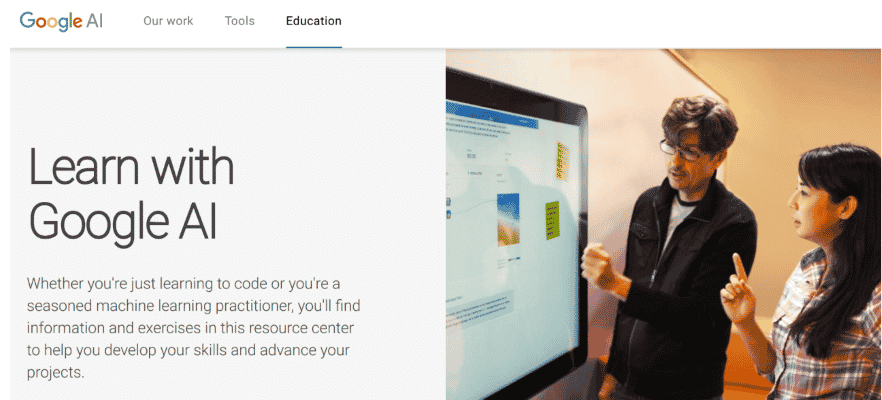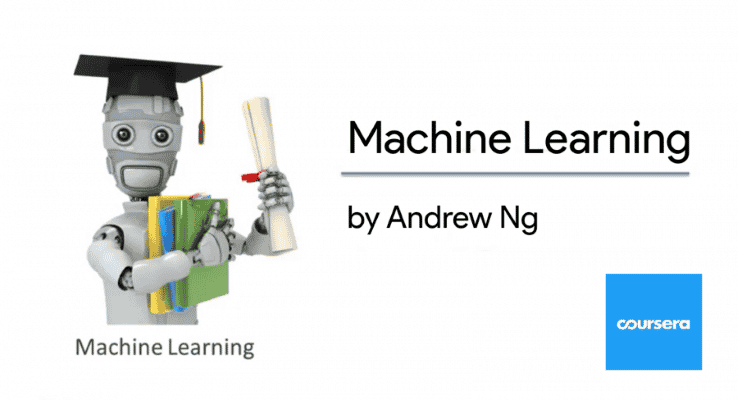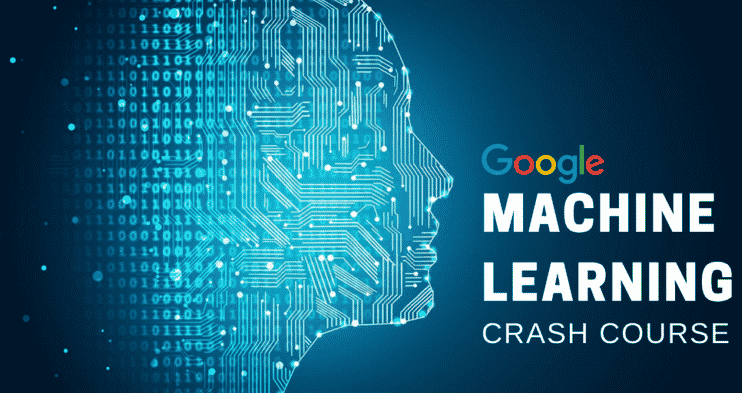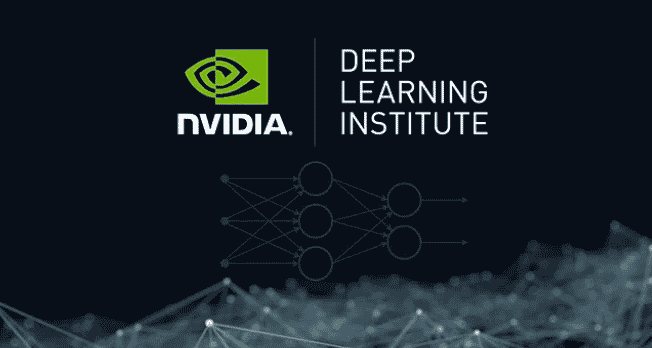With the increasing demand in the market for people with knowledge and skills in artificial intelligence (AI) and machine learning (ML), it is time to learn about these courses. If you are unsure where to start, here are the best free AI courses you can pursue online.
What you will see?
Elements of AI – Helsinki University

This is an introductory course to learn what artificial intelligence (AI) is. Additionally, it also teaches about how it affects people and its uses without having to learn the underlying mathematics and statistics. It contains practical exercises. It demonstrates that an in-depth understanding of those subjects isn’t important to start taking advantage of the potential by AI and machine learning. Although the course was originally available only in Finland (and in Finnish). However, as part of the government’s AI education initiative, it was decided last year to make it available to the rest of the world.
Learn with Google AI

This course includes guidance on applying AI and machine learning to social, environmental, and humanitarian concerns. Additionally, it includes information on how to ensure that your AI implementations are both ethical and “people-centric.” All of this contributes to a broader knowledge of the myriad elements, technological and otherwise. Take this into consideration when determining how AI can benefit you. This newly created resource is part of Google’s goal to increase public awareness of artificial intelligence. Material is being added slowly. However, there is already a crash course on Machine Learning with TensorFlow (Google’s machine learning library).
From a basic introduction to machine learning to start with TensorFlow to creating and training neural nets, this course covers it all. This course is especially for those with no prior understanding of machine learning and can jump right in. Also, those with some expertise may pick and choose courses that interest them. Moreover, machine learning specialists can use it as a TensorFlow introduction.
Intro to Artificial Intelligence – Udacity
This course begins with the basics of statistics and logic before moving on to more applicable, specific applications of AI. This includes robotics, computer vision, and natural language processing. Peter Norvig and Sebastian Thrun teach this course. They are two famous AI researchers and the course takes about four months to complete. Here you may study the fundamentals of AI and its expanding business applications. The course counts toward their machine learning specialization program. Moreover, it includes a machine learning certification for individuals who desire to pursue it.
Machine Learning – Stanford University (Coursera)

Andrew Ng teaches this course. He is the founder of Google’s pioneering Google Brain Deep Learning programme. He is frequently recognised by AI professionals as the single most significant online resource for anyone wanting to understand AI. This course provides a solid foundation in the mathematics, statistical, and computer science basics needed to create and deploy autonomous learning machines. This Machine Learning course on Coursera is simply titled “Machine Learning,” and it is completely free. You’ll only have to pay if you want a Coursera shareable machine learning certification after completing the course (though this may be appealing to potential employers).
The course has 11 weeks of instruction and 5-8 readings and videos per week. Moreover, the course material is a little more extensive than Google’s machine learning course. This course does an excellent job of discussing AI strategy as well as providing a better grasp of how AI and machine learning applications work.
AI for Everyone – Andrew Ng (Coursera)
This is another Andrew Ng course. It is for those who don’t need a deep technical understanding of the subject but want to start using AI in their businesses or roll out AI initiatives while working with non-technical teams. It goes through the process of operating AI projects as well as how to plan for AI deployments in the workplace. Andrew Ng is a former Baidu chief scientist, adjunct professor at Stanford, and co-founder of Coursera. Also, he is one of the most well-known figures in the fields of artificial intelligence and machine learning. He is also the inventor of Google’s deep learning research branch, Google Brain.
The course covers a wide range of real-world machine learning applications. It includes speech recognition and improving web search results. It also delves into statistics topics like linear regression, and neural network backpropagation methods. Moreover, there is a Matlab tutorial, one of the most widely used programming languages for probability-based AI tools.
Data Science and Machine Learning Essentials – Microsoft (EdX)
This course also comes on the list of best AI courses because data science is the cornerstone of today’s AI. There is a lot of overlap between these two fields. If you’re not sure what machine learning is, think of it as a process that uses data science to achieve what we currently refer to as artificial intelligence. This course provides an excellent overview. It begins by introducing the fundamental concepts of data science before moving on to show their implementation in machine learning.
Machine Learning Crash Course – Google

This is another Google course that is essential reading for anyone working in the company’s AI division. This course covers the fundamentals of TensorFlow, Google’s open-source deep-learning toolkit. Google utilizes it in many of its own AI-enhanced services and projects. Moreover, the course also includes the theory and practical applications of TensorFlow. Google is a leader in artificial intelligence and machine learning, and their machine learning classes are available for free. The best part about Google’s machine learning crash course is that it isn’t overly technical. You’ll need a basic understanding of math fundamentals. Regardless, you’ll discover everything you need to know about important topics.
This course will be useful even if your goal is to simply study AI rather than construct it. While the course does not provide a formal machine learning certification, it is a great course for any marketer. This is a significantly more in-depth Google course available on Udacity. As a result, it is not for total beginners. Moreover, it expects that you have some prior machine learning experience, at the very least with supervised learning approaches. Deep learning and the construction of self-teaching systems that can learn from big, complicated datasets are the main topics.
The course focuses on data analysts, data scientists, and machine learning engineers. So, if they want to put machine learning and neural network technologies to work, this course is for them. Moreover, it even focuses on enterprising individuals who want to make use of the numerous open-source libraries and materials available.
Learning From Data (Introductory Machine Learning) – Caltech (EdX)
This course starts with theoretical principles such as “what is learning?” and “can machine learn?”. moving further, it even covers advanced practical applications including creating ML algorithms used to power neural networks. It aims to help the people who want to set up a career as a data scientist or analyst. Moreover, all of the materials are freely available, but you can pay $50 for official certification at the end.
Artificial Intelligence A-Z: Learn How To Build An AI – Udemy
This course walks you through the practical procedures required to develop machines that tackle a variety of real-world AI challenges. This includes driving a car or playing a game. It also covers Q-learning, a reinforcement learning-based machine learning technique that is gaining traction in cutting-edge applications.
Creative Applications of Deep Learning With Tensorflow – Kadenze (Class Central)
Deep learning is one of AI’s most sophisticated topics, and it teaches to build machines that think and learn like humans. This is another course that focuses on the open-source TensorFlow framework. It was designed by Google for use in Deep Learning. It has positive feedback for providing an easy-to-understand approach to a difficult technical subject.
Machine Learning – Columbia University
This course is also accessible for free online in its entirety. It comes with the option to pay for certification if you require it. Models, methods, and applications for solving real-world issues using probabilistic and non-probabilistic methodologies are included in the course. It even teaches supervised and unsupervised learning. Over the course of 12 weeks, you can anticipate spending roughly eight to ten hours per week on the materials and exercises to get the most out of the course. However, this is a free Ivy League education, so don’t expect it to be easy. It’s available through the non-profit edX online course provider as part of a Nanodegree in Artificial Intelligence.
Nvidia – Fundamentals of Deep Learning for Computer Vision

Computer vision is a branch of artificial intelligence. It focuses on creating computers that can “see” by processing visual data in the same way that our brains do. It covers how to identify circumstances or issues that can benefit from the application of computers capable of object identification and image categorization, as well as the technological principles. Nvidia, as a manufacturer of graphics processing units (GPUs), understands the critical role that these high-powered graphical engines. These were previously primarily used to display cutting-edge images. They have played in the broad adoption of computer vision applications. The final exam includes developing a neural network application. Furthermore, you can complete the course at your own pace. However, you should budget roughly eight hours to complete it.
MIT – Deep Learning for Self Driving Cars
MIT uses one important real-world component of AI as a jumping-off point to investigate the specific technologies involved. Self-driving cars, which will become a part of our daily lives, rely on AI to interpret all of the data coming in from the vehicle’s array of sensors and safely navigate the roadways. This entails teaching robots how to interpret data from those sensors in the same way that our brains do with signals from our eyes, ears, and touch. It explains how to use the MIT DeepTraffic simulator. This requires students to teach a simulated car to drive as quickly as possible along a busy road while avoiding colliding with other road users.
This is a course that was offered for the first time at a brick-and-mortar university last year. All of the materials, including lecture videos and activities, are available online. However, you will not be able to get a certificate.
Conclusion
With advancements in technologies, AI is giving a new world. If you want to learn about AI, but lack resources for a proper college education, you can try learning from online courses. There are so many free online courses, tutorials, and guides that it is entirely possible to obtain a certificate. These courses give a thorough understanding of these topics without spending any money. You can also study at your own pace and at your own time. Some of these resources are by world-renowned colleges, while others are by experts eager to share their expertise. These courses focus on a variety of audiences. You can learn how to build and code AI algorithms, put together the growing number of “DIY” AI products and services, and manage AI projects at your company. Whatever your requirements, you will almost certainly find something here that will broaden your horizons.
Which AI courses do you want to enroll in? Tell us in the comments section below.
Read More!
- Coursera Learning Platform -A platform that offers massive open online courses!
- edX review: Platform that helps you to learn different online courses!
- Best IT certification courses- Build your career now!
- Change Your Apple Watch Band with just a few steps!
- Best AI writer to create the best and most impressive content!
















